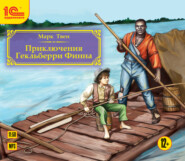По всем вопросам обращайтесь на: info@litportal.ru
(©) 2003-2025.
✖
A Tramp Abroad
Автор
Год написания книги
2015
Настройки чтения
Размер шрифта
Высота строк
Поля
“Hotel Pension-Beaurivage.”
“Sho, you ought to stop at the Schweitzerhof. Didn’t you know the
Schweitzerhof was the best hotel in Switzerland? – look at your
Baedeker.”
“Yes, I know – but I had an idea there warn’t any Americans there.”
“No Americans! Why, bless your soul, it’s just alive with them! I’m in the great reception-room most all the time. I make lots of acquaintances there. Not as many as I did at first, because now only the new ones stop in there – the others go right along through. Where are you from?”
“Arkansaw.”
“Is that so? I’m from New England – New Bloomfield’s my town when I’m at home. I’m having a mighty good time today, ain’t you?”
“Divine.”
“That’s what I call it. I like this knocking around, loose and easy, and making acquaintances and talking. I know an American, soon as I see him; so I go and speak to him and make his acquaintance. I ain’t ever bored, on a trip like this, if I can make new acquaintances and talk. I’m awful fond of talking when I can get hold of the right kind of a person, ain’t you?”
“I prefer it to any other dissipation.”
“That’s my notion, too. Now some people like to take a book and sit down and read, and read, and read, or moon around yawping at the lake or these mountains and things, but that ain’t my way; no, sir, if they like it, let ’em do it, I don’t object; but as for me, talking’s what I like. You been up the Rigi?”
“Yes.”
“What hotel did you stop at?”
“Schreiber.”
“That’s the place! – I stopped there too. Full of Americans, wasn’t it? It always is – always is. That’s what they say. Everybody says that. What ship did you come over in?”
“Ville de Paris.”
“French, I reckon. What kind of a passage did… excuse me a minute, there’s some Americans I haven’t seen before.”
And away he went. He went uninjured, too – I had the murderous impulse to harpoon him in the back with my alpen-stock, but as I raised the weapon the disposition left me; I found I hadn’t the heart to kill him, he was such a joyous, innocent, good-natured numbskull.
Half an hour later I was sitting on a bench inspecting, with strong interest, a noble monolith which we were skimming by – a monolith not shaped by man, but by Nature’s free great hand – a massy pyramidal rock eighty feet high, devised by Nature ten million years ago against the day when a man worthy of it should need it for his monument. The time came at last, and now this grand remembrancer bears Schiller’s name in huge letters upon its face. Curiously enough, this rock was not degraded or defiled in any way. It is said that two years ago a stranger let himself down from the top of it with ropes and pulleys, and painted all over it, in blue letters bigger than those in Schiller’s name, these words:
“Try Sozodont;”
“Buy Sun Stove Polish;”
“Helmbold’s Buchu;”
“Try Benzaline for the Blood.”
He was captured and it turned out that he was an American. Upon his trial the judge said to him:
“You are from a land where any insolent that wants to is privileged to profane and insult Nature, and, through her, Nature’s God, if by so doing he can put a sordid penny in his pocket. But here the case is different. Because you are a foreigner and ignorant, I will make your sentence light; if you were a native I would deal strenuously with you. Hear and obey: —You will immediately remove every trace of your offensive work from the Schiller monument; you pay a fine of ten thousand francs; you will suffer two years’ imprisonment at hard labor; you will then be horsewhipped, tarred and feathered, deprived of your ears, ridden on a rail to the confines of the canton, and banished forever. The severest penalties are omitted in your case – not as a grace to you, but to that great republic which had the misfortune to give you birth.”
The steamer’s benches were ranged back to back across the deck. My back hair was mingling innocently with the back hair of a couple of ladies. Presently they were addressed by some one and I overheard this conversation:
“You are Americans, I think? So’m I.”
“Yes – we are Americans.”
“I knew it – I can always tell them. What ship did you come over in?”
“City of Chester.”
“Oh, yes – Inman line. We came in the Batavia—Cunard you know. What kind of a passage did you have?”
“Pretty fair.”
“That was luck. We had it awful rough. Captain said he’d hardly seen it rougher. Where are you from?”
“New Jersey.”
“So’m I. No – I didn’t mean that; I’m from New England. New Bloomfield’s my place. These your children? – belong to both of you?”
“Only to one of us; they are mine; my friend is not married.”
“Single, I reckon? So’m I. Are you two ladies traveling alone?”
“No – my husband is with us.”
“Our whole family’s along. It’s awful slow, going around alone – don’t you think so?”
“I suppose it must be.”
“Hi, there’s Mount Pilatus coming in sight again. Named after Pontius Pilate, you know, that shot the apple off of William Tell’s head. Guide-book tells all about it, they say. I didn’t read it – an American told me. I don’t read when I’m knocking around like this, having a good time. Did you ever see the chapel where William Tell used to preach?”
“I did not know he ever preached there.”
“Oh, yes, he did. That American told me so. He don’t ever shut up his guide-book. He knows more about this lake than the fishes in it. Besides, they call it ’Tell’s Chapel’—you know that yourself. You ever been over here before?”
“Yes.”
“I haven’t. It’s my first trip. But we’ve been all around – Paris and everywhere. I’m to enter Harvard next year. Studying German all the time now. Can’t enter till I know German. This book’s Otto’s grammar. It’s a mighty good book to get the ich habe gehabt HABEN’s out of. But I don’t really study when I’m knocking around this way. If the notion takes me, I just run over my little old ich habe gehabt, du hast gehabt, er hat gehabt, wir haben gehabt, ihr haben gehabt, sie haben gehabt—kind of ‘Now-I-lay-me-down-to-sleep’ fashion, you know, and after that, maybe I don’t buckle to it for three days. It’s awful undermining to the intellect, German is; you want to take it in small doses, or first you know your brains all run together, and you feel them sloshing around in your head same as so much drawn butter. But French is different; French ain’t anything. I ain’t any more afraid of French than a tramp’s afraid of pie; I can rattle off my little J’AI, Tu as, IL A, and the rest of it, just as easy as a-b-c. I get along pretty well in Paris, or anywhere where they speak French. What hotel are you stopping at?”
“The Schweitzerhof.”
“No! is that so? I never see you in the big reception-room. I go in there a good deal of the time, because there’s so many Americans there. I make lots of acquaintances. You been up the Rigi yet?”
“No.”
“Going?”

















